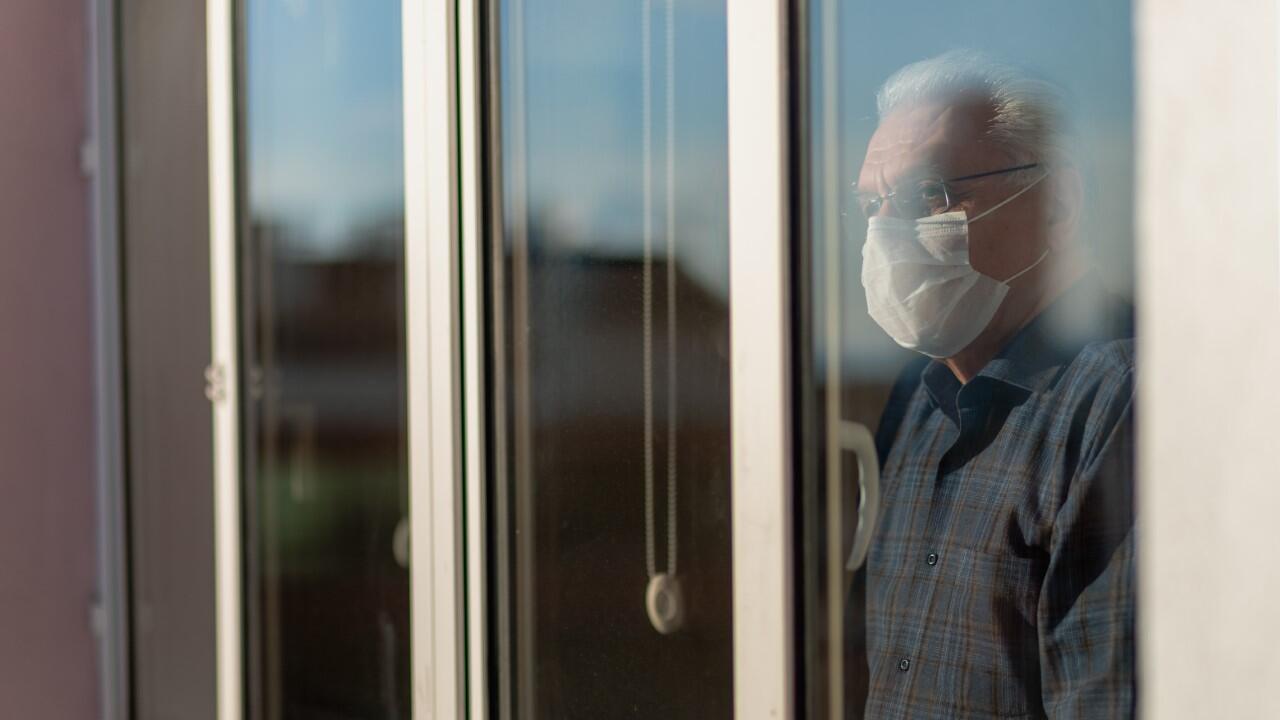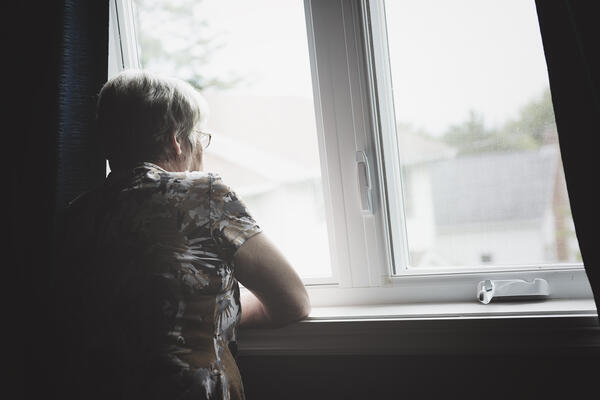
New COVID-19 screening tool can identify older adults at risk
The COVID-19 Vulnerability Screener can be used by lay persons to identify people at risk

The COVID-19 Vulnerability Screener can be used by lay persons to identify people at risk
By Media RelationsA new screening tool to identify older adults at risk of COVID-19 has been developed by a team led by the University of Waterloo.
The COVID-19 Vulnerability Screener can be used by lay persons to identify older adults, both in the home and in retirement homes, who are at a high risk of adverse health outcomes due to COVID-19.
“The screening tool identifies the immediate risks of COVID-19 and medical, functional and psychosocial vulnerabilities of frail older persons that require effective chronic disease management,” said John Hirdes, a professor in the School of Public Health and Health Systems and lead researcher responsible for developing the new tool.
“We cannot ignore these vulnerabilities: older adults with dementia, cardiopulmonary conditions, mental health problems and frailty risk being affected severely by the virus.”
Typically, clinical assessments and care planning for older adults rely on in-person interactions between patients and clinicians. However, physical distancing during the pandemic has meant that these assessments are being postponed to minimize risk. In Canada, 93 per cent of deaths due to COVID-19 occurred in people over the age of 60. Half of the COVID-19 deaths have happened in retirement and nursing homes, which continue to be hit hard by COVID-19 cases.
“Social distancing protects frail older persons, but the ensuing isolation can cause serious, undetected physical and mental health consequences leading to catastrophic decline, hospitalization and death if the person does contract COVID-19.”
The team used advanced analytics of millions of assessment records from interRAI, a 35-country not-for-profit network of researchers, to develop a self-report system that anyone can use.
“This project can put in place a safety net and science-based intervention to reduce the magnitude of the short- and longer-term impact of the pandemic,” Hirdes said. “The system changes being proposed during the pandemic have the potential to drive significant system improvements beyond the COVID-19 pandemic.”
The COVID-19 Vulnerability Screener was launched this week in Canada and South Africa, and will be deployed in other countries using the interRAI network. The team is working with a partner in Finland, and has collaborators in Canada, Finland, Norway, Netherlands, Belgium, South Africa and Singapore.
“Older adults need a COVID-19 response that goes beyond the simple tracking of symptoms,” Hirdes said. “The effectiveness of the response to underlying complex health needs of older persons also depends on the availability of scientifically sound assessment and screeningsystems that operate with existing Canadian data standards and support telehealth interventions.”
Other researchers on the team include George Heckman (Waterloo), Chris Perlman (Waterloo), and collaborators in Finland and elsewhere.
Note: This research has not yet been peer-reviewed and is being released as part of UWaterloo’s commitment to help inform Canada’s COVID-19 response.

Read more
Dr. David Hammond is leading a new study to examine the health risks of e-cigarettes among young people in Canada

Read more
Study compares traditional versus dynamic chairs during prolonged seated work

(Getty Images/LSOphoto)
Read more
Study examined middle-aged and older adults over six years
The University of Waterloo acknowledges that much of our work takes place on the traditional territory of the Neutral, Anishinaabeg, and Haudenosaunee peoples. Our main campus is situated on the Haldimand Tract, the land granted to the Six Nations that includes six miles on each side of the Grand River. Our active work toward reconciliation takes place across our campuses through research, learning, teaching, and community building, and is co-ordinated within the Office of Indigenous Relations.